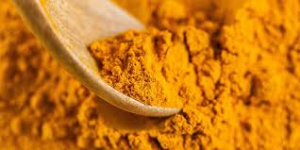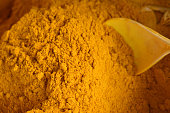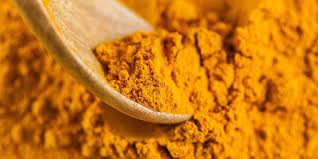If you read any type of literature on health, wellness, and supplements, you are bound to read about Turmeric and Curcumin. Turmeric is a spice that people have used for centuries in both food and medicine. It is a plant scientifically known as Curcuma longa. It’s the roots, or “rhizomes” of this plant that is used in culinary spice powders and herbal tonics. Curcumin is a naturally occurring compound within the turmeric plant’s roots that provides its yellow color. Simply put, Turmeric is a spice used to season food, while curcumin is the active chemical in turmeric. Now that we’ve distinguished between the two, let’s look at exactly at what are the health benefits of turmeric curcumin.
Shut Down Inflammation with the “Spice of Life”
Curcumin is a powerful antioxidant that works by blocking certain proteins, enzymes and other molecules responsible for inflammation. Inflammation is normal, but it can bring about intensive damage. Although it is a natural physical response, triggered when the body begins to repair damage or injuries, inflammation should be limited. Even though inflammation is commonly associated with pain, chronic inflammation is associated with many diseases. Curcumin, unlike synthetic drugs, works on multiple inflammation pathways to help return the body to a normal inflammation balance. Additionally, curcumin has specific, unique mechanisms of action that make it invaluable in treating many – if not most – chronic diseases. It’s especially effective when it comes to blocking enzymes that produce pain. This makes it particularly helpful when it comes to treating arthritis pain and joint discomfort. The fact is, curcumin is so successful as a pain reliever that many people who start taking it are able to discontinue the use of dangerous anti-inflammatory drugs within just a matter of weeks.

It also comes with a few bonuses. Not only does curcumin work to shut down the pain associated with arthritis, it also helps ease morning stiffness so you can get moving around more quickly after you wake up. Some people even find that it’s helpful when it comes to reducing some of the irritating creaking and grating that often occurs during joint movement. And it does all of this without any of the devastating side effects associated with anti-inflammatory drugs
Give Your Memory A Boost!
The antioxidant and anti-inflammatory powers of curcumin can even extend to your brain. Regular use can clear out a lot of the “gunk” that contributes to memory loss, Alzheimer’s and dementia out of your brain.  This includes things like amyloid plaques and heavy metals that interfere with brain activity. It can even improve memory in middle-aged and older adults. All you have to do is take 90 milligrams of curcumin twice a day for 18 months and it could boost your memory function by a whopping 28%! It also improves mood and attention span.
This includes things like amyloid plaques and heavy metals that interfere with brain activity. It can even improve memory in middle-aged and older adults. All you have to do is take 90 milligrams of curcumin twice a day for 18 months and it could boost your memory function by a whopping 28%! It also improves mood and attention span.
These are just a few of the benefits associated with this traditional Indian spice. It also works as well as Prozac to relieve depressive symptoms, has a favorable effect on insulin resistance and shows great promise in the fight against cancer. If all you have to do is take a daily curcumin supplement to achieve all of these results, it’s certainly worth the effort.
Curcumin as a Cancer Killer
Curcumin is a phytochemical with astonishing health properties — but its ability to fight cancer is nothing short of extraordinary. Multiple scientific studies reveal that curcumin has more than 150 documented therapeutic benefits, and is a potent anti-inflammatory, antioxidant, antifungal, antibacterial, antimicrobial, anti-venom — and anticancer treatment.
In fact, curcumin is now known to target 10 separate factors that can lead to cancer. You’d have a good shot at preventing cancer by just eliminating one factor… by eliminating 10 of them — you’re providing yourself with significant anticancer protection.
A recent study published in the journal, Anticancer Research, showed that curcumin targets and kills cancer stem cells — the young malignant cells that grow into tumors — but leaves normal, healthy stem cells untouched.1
Studies have shown that curcumin also:2
- Regulates tumor suppressor pathways and starves tumors of vital blood supply.
- Triggers programmed cell death in breast cancer cells.
- Targets destruction of cancer-cell mitochondria while leaving healthy cells alone.
- Halts replication of cancerous cells.
- Blocks molecules to prevent tumors from growing and spreading.
- Prevents DNA damage.
More studies show that curcumin strikes at multiple targets in prostate cancer, interfering with the spread of cancer cells and regulating inflammatory responses through NF-kB, the master regulator.3,4
Curcumin has also been shown to suppress colon cancer when combined with other polyphenols, such as resveratrol.5 And the combination of curcumin with green tea extracts has prevented experimentally induced colon cancer in animal studies.6
Other studies have shown the power of curcumin against blood cancers, brain cancer, pancreatic cancer, lung cancer and bladder cancer.
Curcumin Has Incredible Benefits Against Depression
Research has found that curcumin has the potential to improve a number of health conditions — including depression. This includes mild depression and even major depressive disorder (MDD).
Antioxidants like curcumin scavenge free radicals that create inflammation. By reducing oxidative stress, they can also reduce inflammation. Recent studies7 have made a connection between depression and chronic inflammation. It’s still not clear if inflammation causes depression or vice versa. Nevertheless, research suggests that chronic inflammation and depression exacerbate one another. It’s thought that antioxidants like curcumin can help relieve symptoms of depression by fighting chronic inflammation.
A 2017 study8 found that curcumin reduced depression symptoms. It was effective on its own and in combination with another herb, saffron. The same was found in two different 2014 studies, one published in the Journal of Affective Disorders and the other in Phytotherapy Research. In these, curcumin was found to be just as effective when used alone. A study done in 20159 revealed that curcumin could help antidepressants work better.
Research still hasn’t determined whether use in combination with antidepressants works better than use of curcumin alone.
Curcumin for Heart Disease
Curcumin can work wonders to curb inflammation in your arteries. This is extremely important when it comes to protecting your cardiovascular health. Inflammation has a damaging effect on the delicate lining of your blood vessels. This eventually leads to endothelial dysfunction – a condition where the inner linings of blood vessels lose much of their ability to manage the traffic of critical blood flow to and from the heart. This is a critical warning sign of heart disease that could result in a heart attack. Curcumin can help to counteract endothelial dysfunction and improve blood flow by lowering markers of inflammation and reducing oxidative stress. In addition, it does all of this without any of the devastating side effects associated with prescription heart medications.

In an experimental model of heart disease, curcumin was compared to the cholesterol-lowering drug lovastatin. The researchers found that curcumin protected against the effects of a high cholesterol diet just as effectively as lovastatin, preventing the inflammatory changes that lead to plaque buildup, reducing triglycerides and increasing protective HDL cholesterol levels.13 In fact, volunteers receiving 500 mg of curcumin daily in a small clinical trial experienced a 29% increase in HDL levels.14 Just a 1% increase in this “good” form of cholesterol can reduce your risk of heart disease by 2-3%, so this finding is very important. Curcumin has also been found to lower serum triglycerides by 27%. Triglycerides are an undesirable form of fat that circulates in the bloodstream. Although much attention has been focused on cholesterol levels in connection with risk of heart disease, new research is finding that reducing triglyceride levels is likely more important than controlling cholesterol levels. In fact, one recent scientific paper noted that high triglyceride levels nearly tripled the risk of a heart attack.15 Therefore, the ability of curcumin to reduce triglyceride levels is crucial in reducing your risk of heart disease.
Curcumin for Gastrointestinal Inflammation
Chronic intestinal inflammation is associated with several commonly experienced diseases, including irritable bowel syndrome (IBS), inflammatory bowel disease (IBD) and Crohn’s disease. Bloating, frequent diarrhea or constipation, gas, abdominal pain, even heartburn and acid reflux, can all be signs that unchecked inflammation is affecting the proper function of your digestive system. A study including over 200 people with IBS found that use of a standardized extract of curcumin was associated with up to a 25% reduction in abdominal pain, and 2/3 of participants reported an improvement in overall symptoms.29 In a small pilot study of patients with Crohn’s disease or ulcerative proctitis (a type of IBD) who received curcumin along with the standard anti-inflammatory drugs (including steroids), many of the patients were able to reduce or stop the medications, and inflammation markers decreased to within normal limits.30 One of the interesting benefits of curcumin is that it has not only been shown to reduce inflammatory compounds in the intestines, it can actually strengthen the intestinal wall to prevent harmful bacteria from passing out of the intestines and reaching other organs, such as the liver and kidneys.
Turmeric for Diabetes
It’s known that curcumin helps reduce inflammation and oxidative stress, both which are factors that appear to play a role in diabetes. For this reason, scientists believe that turmeric may be useful for people with diabetes.
Preliminary research has shown that taking turmeric or curcumin by mouth may help reduce blood sugar to more manageable levels in some people. It is also suggested that suggest that including turmeric or curcumin in the diet may help people with prediabetes slow down or reverse the development of this condition.
Curcumin may also help reduce the risk or severity of some diabetes-related complications such as liver problems, Cholesterol and heart health, and Diabetic neuropathy.
Health Benefits of Turmeric Curcumin
Scientists have been looking at the benefits of turmeric for several other health conditions. According to the NCCIH, some studies have found that curcuminoids might lower the risk of heart attacks after bypass surgery, be as effective as ibuprofen in managing knee pain, and reduce skin irritation, which is common after radiation therapy for breast cancer. Scientists have also looked at the benefits of turmeric for reducing dental plaque as a mouthwash ingredient, skin problems, atherosclerosis, liver and gallbladder problems, breathing difficulties and fatigue. Various research has also suggested that turmeric may help with psoriasis, ulcerative colitis, uveitis, Crohn’s disease, and peptic and gastric ulcers.

Turmeric Curcumin is one of the most powerful natural medicines available today without a prescription. While there is much research to be done, enhanced forms of curcumin may also provide even further benefits, making curcumin therapy a very realistic option for almost any condition.
Now that you have learned some of what are the health benefits of turmeric curcumin, talk to your healthcare provider and see if turmeric curcumin can help you achieve better, natural health.
Precautions:
The small amounts of turmeric used to flavor food rarely, if ever cause effects. Taking large doses of turmeric or purified curcumin for long periods of time though, such as several grams per day, can potentially cause side effects, including nausea, vomiting and diarrhea. High levels of turmeric can also inhibit blood clotting, which can increase the risk of severe bleeding in patients undergoing surgery or people who are taking other blood-thinning medications. If you have any concerns, always consult your doctor before taking large amounts of turmeric or curcumin supplements.
1. Sordillo PP and Helson L. “Curcumin and cancer stem cells: curcumin has asymmetrical effects on cancer and normal stem cells.” Anticancer Res. 2015;35(2):599-614.
2. Life Extension Magazine. “How Curcumin Protects Against Cancer.” March 2011.
3. Teiten MH, et al. “Chemopreventive potential of curcumin in prostate cancer.” Genes Nutr. 2010;5(1):61-74.
4. Piantino CB, et al. “An evaluation of the anti-neoplastic activity of curcumin in prostate cancer cell lines.” Int Braz J Urol. 200935(3):354-60.
5. Yu Y, et al. “Elimination of colon cancer stem-like cells by the combination of curcumin and FOLFOX.” Transl Oncol. 2009;2(4):321-328.
6. Xu G, et al. “Combination of curcumin and green tea catechins prevents dimethylhydrazine-induced colon carcinogenesis.” Food Chem Toxicol. 2010;48(1):390zzv5.
7. US National Library of Medicine, National Institutes of Health https://www.ncbi.nlm.nih.gov/pmc/articles/PMC5542678/
8. Efficacy of curcumin, and a saffron/curcumin combination for the treatment of major depression: A randomised, double-blind, placebo-controlled study https://www.ncbi.nlm.nih.gov/pubmed/27723543
9. Chronic Supplementation of Curcumin Enhances the Efficacy of Antidepressants in Major Depressive Disorder: A Randomized, Double-Blind, Placebo-Controlled Pilot Study. https://www.ncbi.nlm.nih.gov/pubmed/26066335
